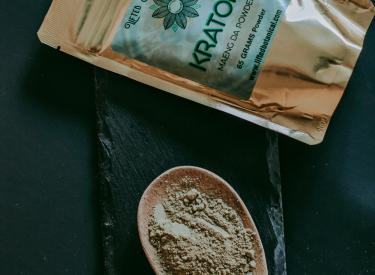
How does Alcohol Cause Birth Defects?
There seems to be a general consensus that drugs are harmful during pregnancy – but when it comes to alcohol, opinions are much more varied. Some people believe that a drink now and then is just fine when you’re pregnant, and in fact, a survey by the Center for Disease Control (CDC) found that 1 in 10 pregnant women reported drinking alcohol in the last 30 days. Even Hollywood seems to condone drinking alcohol during pregnancy, with characters like Lily from “How I Met Your Mother” drinking “just a little bit” of wine with her doctor’s approval.
National Alcohol and Other Drug Related Birth Defects Week runs May 14 through 20, making this an important time to discuss the effects of alcohol during pregnancy. You might be surprised by the statistics. If you think that the large majority of women who drink during pregnancy are young women with unplanned pregnancies or women without access to good prenatal care or medical advice, you’re wrong. The CDC’s survey found the highest prevalence of alcohol use during pregnancy was reported among unmarried college graduates between the ages of 35-44.
No matter what your age, how much you drink, or how far along in your pregnancy you are, alcohol has a negative impact on an unborn baby. According to the March of Dimes, research shows that any amount of alcohol whatsoever can be harmful during pregnancy: There is no safe amount of wine, beer, or liquor you can drink without risking the health of your fetus. Even negligible amounts of alcohol, like the amount found in cough syrup, can hurt a developing baby in the womb and cause alcohol-related birth defects.
Alcohol begins affecting a fetus from the time it’s conceived – which means it could be harming your baby’s development before you even know you’re pregnant. For this reason, the National Institute of Health and many health care providers recommend you stop drinking up to three months before you start trying to get pregnant in order to keep your baby safe.
As a baby is developing, it receives nutrients from the mother’s bloodstream through the placenta and umbilical cord. When a pregnant woman drinks, the alcohol in her blood is passed along to her baby in the same way that anything else would be. That alcohol can interfere with the development of the brain and other organs, causing a range of alcohol-related birth defects that includes anything from premature birth to fetal alcohol spectrum disorders (FASDs) to stillbirth.
One of the most severe results of alcohol consumption during pregnancy is Fetal Alcohol Syndrome – which involves substantial physical or developmental issues because of exposure to alcohol in the womb. The CDC estimates that as many as 1.5 in every 1000 babies has FAS and that the costs of FAS alone are roughly four billion dollars annually.
In addition to FAS, there are also less profoundly-damaging but still significant issues that may arise in children who are exposed to alcohol before birth, and these are classified as Fetal Alcohol Spectrum Disorders. FASD is not a clinical diagnosis, but it is commonly used to refer to this known group of issues involving problems with brain function, developmental problems, and physical effects. There are many symptoms of FASD, and these are just some of the issues that may be experience by children who were exposed to alcohol before birth:
- Small head size
- Lower than average height
- Low body weight
- Difficulties with coordination
- Low IQ
- Learning Disabilities
- Hyperactivity
- Attention deficit
- Problems with vision and hearing
- Kidney, heart or bone issues
There is currently no cure for FASD, and it lasts a lifetime. While information about the prevalence is limited, experts believe that between 2% and 5% of the population experiences some effect of FASD.
The March of Dimes, the CDC, and experts all agree that the best way to keep your baby safe during pregnancy is to avoid all alcohol. This includes during any time you’re trying to become pregnant or think you might be pregnant. Drinking any amount at any point during pregnancy interferes with your baby’s physical and mental development and affects your ability to carry your baby to term.
While it’s better for your baby if you don’t drink at all during pregnancy, it’s never too late to stop if you have been drinking while pregnant. Every day your baby grows in an alcohol-free environment allows it to have a better chance at healthy development and decreases the chances of alcohol-related birth defects. If you struggle with alcohol use and hope to become pregnant or if you are pregnant and have an alcohol use disorder, don’t be afraid to seek treatment. Just like you, your doctor want the best for your baby and can help create a plan that keeps you and your baby healthy and substance-free.



